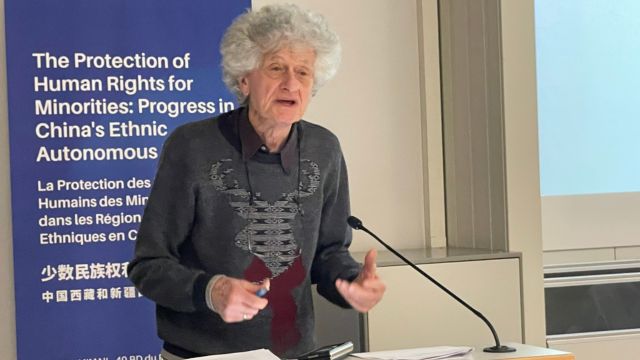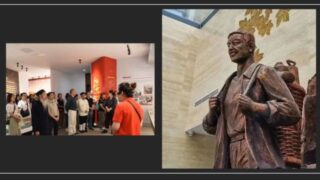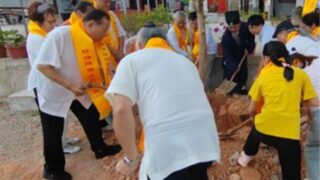Chinese “experts” and Western fellow travelers assured a small audience that the two regions are a model of respect of religious liberty and other rights.
by Massimo Introvigne


On March 18, 2024, the China Society for Human Rights Studies (CSHRS) organized a seminar titled “The Protection of Human Rights for Minorities: Progress in China’s Ethnic Autonomous Regions” during the 55th session of the UN Human Rights Council in Geneva. The seminar was held in a classroom of the University of Geneva, which raises some doubts about the independence of that prestigious athenaeum and its possible links with Chinese money.
In a nutshell, the seminar presented Tibet, systematically called Xizang, and Xinjiang as model regions where human rights are affirmed and protected thanks to the enlightened rule of the CCP. Beijing sent Liang Junyan, a researcher at the Institute of History Studies of China Tibetology Research Center, Jia Chunyang, executive director of the Center for Economic and Social Security Studies of the China Institutes of Contemporary International Relations, Qiao Basheng, director of the Center for International Communication and Cultural Security Studies of the Northwest University of Political Science and Law, and Tuersun Aibai, an associate professor with the School of Journalism and Communication of Xinjiang University. They were joined by André Lacroix, presented as a “Belgian Tibetologist,” but who is in fact a retired high school teacher who regularly peddles Chinese propaganda about Tibet, and Dechen Shak-Dagsay, a Swiss-Tibetan musician.
To call the seminar a farce may even be too charitable. The CCP experts claimed that the People’s Republic of China has a long tradition of respecting and protecting the rights and interests of ethnic minorities, and that the establishment of ethnic autonomous regions is a manifestation of the principle of national equality and self-determination. They also asserted that China has made remarkable progress in the economic, social, cultural, and political development of Xizang (Tibet) and Xinjiang, and that the people of these regions enjoy a high degree of autonomy, religious freedom, and human rights.
Accusations that it is not so, Liang and Qiao said, are caused by external interference and sabotage by hostile forces, which seek to undermine China’s sovereignty and territorial integrity. Tuersun Abai’s task was to deny that Uyghurs are coerced into “forced labor.” He claimed that Western researchers who denounce “slave labor” and governments that impose sanctions on companies that use Uyghur “organized labor” are condemning Uyghurs to poverty. Tuersun Abai had the effrontery to say that they are those who are really responsible for violating human rights in Xinjiang.


Perhaps the most shameful speeches were by the former Belgian high school teacher Paul Lacroix and by the musician Dechen Shak-Dagsay. The United Nations have formally condemned the separation of Tibetan children from their families and their education in boarding schools where their Tibetan and Buddhist culture is denied. However, Lacroix and Shak-Dagsay had the audacity to claim that religious liberty reigns in Tibet and that the boarding schools actually help and empower Tibetan children.
Jia Chunyang presented a pseudo-sociological study based on a survey where he claim he asked Tibetan pupils and their parents whether they like the boarding schools where children have been forcibly taken. Jia reported that “about two-thirds of students say they ‘like it very much’ or ‘like it’ living in boarding schools, while 30.56 percent say ‘average.’ Only 5.15 percent of students chose ‘dislike’ or ‘dislike very much.’ An overwhelming 71.43 percent of the parents felt ‘reassured’ about their children living in boarding schools.” Perhaps a comment on the seriousness of this “survey” is not even needed. It is reminiscent of the old Soviet joke that in a survey 100% of the citizens answered that they “could not complain” about how they lived—but many added “because complaining is forbidden.”
The seminar presented selective and distorted information, and it ignored or denied the overwhelming evidence and testimonies of the human rights violations and abuses in Tibet and Xinjiang. It is not through these farcical events that China can answer charges that it is committing genocide there. The participants, the organizers, and the few Western media that reported sympathetically on the event, perhaps not for free, should feel truly ashamed.









